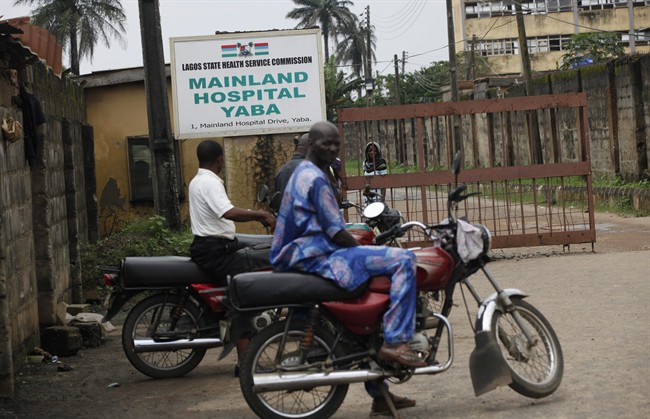The Ebola virus has been on the world’s health radar for close to four decades after being isolated in the Democratic Republic of Congo in 1976.

There have been multiple outbreaks since then – but nothing like this.
The world is in the grips of the worst Ebola outbreak ever recorded, with 1,711 reported cases and 932 deaths so far.
What went wrong?
Villages to cities
Previous Ebola outbreaks have occurred in smaller villages, with little or no transmission to larger groups of people, said Dr. Jay Keystone, an expert in tropical and infectious disease at the University of Toronto.
In this case, people from areas where the outbreak originated travelled to other cities and countries , precipitating more infections outside Guinea, where the outbreak began. There were no early attempts in place to stop people from getting on planes if they looked sick, he said.
Insufficient public health infrastructure

Get weekly health news
The countries worst hit by the virus have mobile populations but nowhere near the public health infrastructure required to deal with an outbreak of this magnitude, Keystone said. This allowed it to worsen without containment.
It’s also the first major Ebola outbreak in West Africa, taking governments and health care systems by surprise.
In a statement, the World Health Organization said the sheer geographical size of the outbreak makes coordination efforts extremely difficult, especially because these individual countries have limited capacity to deal with a public health emergency.
Mistrust of medical authority
It’s tough to tackle or contain a virulent disease when the public doesn’t believe you.
Many people in smaller, more rural communities blamed hospitals or health workers for the deaths of their family members. Some refused to seek treatment, fearing they’d never return.
Doctors have been chased out of villages, survivors are stigmatized and unsafe funeral practices (such as washing the body of an Ebola victim and then touching their nose, eyes, or mouth) continued long after the disease began to spread, said Tim Jagatic, a Canadian doctor with Doctors Without Borders.
In some cases, people try to treat Ebola-infected relatives at home, hiding hiding patients from health care workers, according to the WHO.
The World Health Organization is calling on governments in affected countries to fully engage the community through local, religious, traditional leaders and healers in an effort to win the public’s trust and curb infection rates.
The WHO also hopes countries will start to actively screen people at airports, seaports and land crossings for symptoms such as fevers, coughing or trouble breathing.








Comments